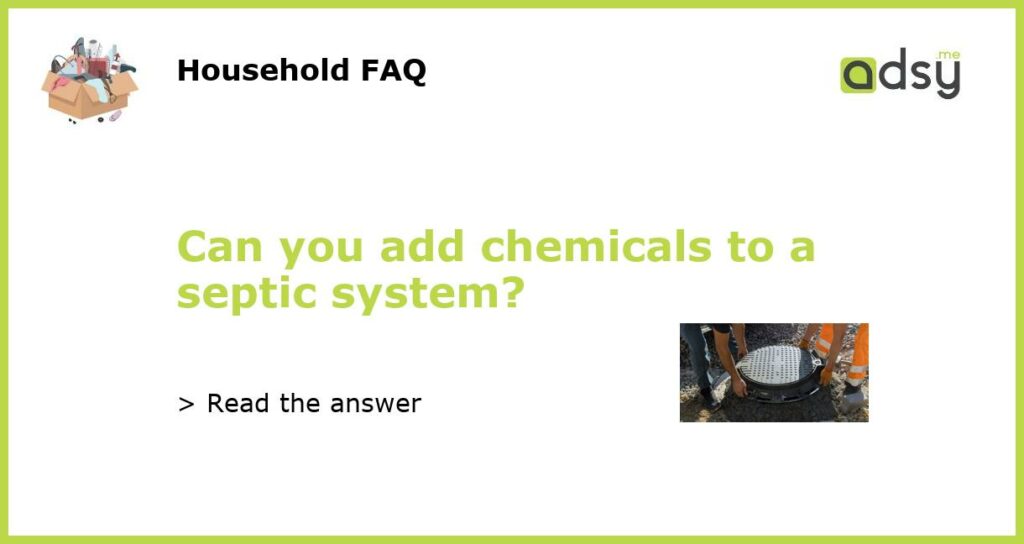Yes, you can add chemicals to a septic system, but it must be done with caution and following specific guidelines.
Septic systems are underground wastewater treatment structures commonly used in rural areas where there are no municipal sewers. They are designed to treat and dispose of household wastewater on-site. The system consists of a septic tank, where solids settle and decompose, and a drainfield, where liquid wastewater is treated by bacteria and then absorbed into the soil.
Adding chemicals to a septic system can have both positive and negative effects. Some chemicals can help maintain and improve the system’s performance, while others can harm the bacteria and disrupt the natural treatment process. It is essential to use the right chemicals in the right amounts and avoid anything that may harm the system.
Are there beneficial chemicals for septic systems?
Some chemicals can be beneficial for septic systems when used properly. These include:
- Septic tank treatments: These products contain beneficial bacteria and enzymes that help break down solids in the septic tank, improving its efficiency and reducing odors. They can be especially useful for septic systems that receive a high volume of organic waste.
- Chemicals that promote bacterial growth: Adding materials that support the growth of bacteria in the septic system can help enhance its performance. These may include yeast, which contains enzymes that aid in the breakdown of waste, or biodegradable cleaning products that are septic system-safe.
- Leach field treatments: Products designed to boost the performance of the drainfield can help improve the absorption of wastewater into the soil. These treatments usually contain bacteria and enzymes that break down organic matter and clear clogged or compacted soil.
It is crucial to follow the instructions provided with these products and use them in moderation. Too much of certain chemicals can harm the septic system’s delicate balance.
What chemicals should be avoided?
While some chemicals can benefit septic systems, others should be avoided altogether. These include:
- Household cleaners: Many common household cleaners contain chemicals, such as bleach, ammonia, and anti-bacterial agents that can be harmful to septic systems. These chemicals can kill the beneficial bacteria responsible for treating the wastewater. It is best to choose septic-safe or environmentally friendly cleaning products.
- Pesticides and herbicides: Chemicals used in pesticides and herbicides can also harm the bacteria in the septic system. These chemicals can disrupt the natural treatment process and accumulate in the soil, potentially contaminating groundwater.
- Strong acids or alkalis: Substances with extreme pH levels, such as drain cleaners, can damage the septic system. They can kill off the bacteria and corrode pipes, leading to system failure.
How to safely add chemicals to a septic system?
If you need to add chemicals to your septic system, it is essential to do so safely:
- Read and follow instructions: Always read and follow the instructions provided with any septic system treatment or chemical. Using too much or too little can have unintended consequences.
- Choose septic-safe products: Look for products labeled as septic-safe or environmentally friendly. These are specifically designed not to harm the septic system’s bacteria.
- Use chemicals in moderation: Avoid using excessive amounts of any chemical in your septic system. Doing so can disrupt the natural balance of bacteria and the treatment process.
- Spread chemicals evenly: When adding chemicals to your septic system, distribute them as evenly as possible. This ensures they reach all parts of the system and provide the intended benefits.
- Maintain regular septic system maintenance: Chemicals should not be used as a substitute for regular septic system maintenance. Regular pumping and inspection are necessary to keep the system functioning correctly.

